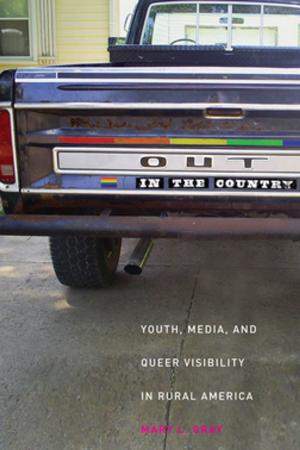Kids Gone Wild
From Rainbow Parties to Sexting, Understanding the Hype Over Teen Sex
Nonfiction, Social & Cultural Studies, Social Science, Gender Studies, Sociology| Author: | Joel Best, Kathleen A. Bogle | ISBN: | 9780814762981 |
| Publisher: | NYU Press | Publication: | August 29, 2014 |
| Imprint: | NYU Press | Language: | English |
| Author: | Joel Best, Kathleen A. Bogle |
| ISBN: | 9780814762981 |
| Publisher: | NYU Press |
| Publication: | August 29, 2014 |
| Imprint: | NYU Press |
| Language: | English |
The myths and truths of teen's sexual behavior.
Winner of the 2015 Brian McConnell Book Award presented by the International Society for Contemporary Legend Research
To hear mainstream media sources tell it, the sex
lives of modern teenagers outpace even the smuttiest of cable television shows.
Teen girls “sext” explicit photos to boys they like; they wear “sex bracelets”
that signify what sexual activities they have done, or will do; they team up
with other girls at “rainbow parties” to perform sex acts on groups of willing
teen boys; they form “pregnancy pacts” with their best girlfriends to all
become teen mothers at the same time. From The Today Show, to CNN, to the New York Times, stories of these events
have been featured widely in the media. But are most teenage—or
younger—children really going to sex parties and having multiple sexual
encounters in an orgy-like fashion?
Researchers
say no—teen sex is actually not rampant and teen pregnancy is at low levels.
But why do stories like these find such media traffic, exploiting parents’
worst fears? How do these rumors get started, and how do they travel around the
country and even across the globe?
In Kids Gone Wild,
best-selling authors Joel Best and Kathleen A. Bogle use these stories about
the fears of the growing sexualization of childhood to explore what we know
about contemporary legends and how both traditional media and the internet perpetuate
these rumors while, at times, debating their authenticity. Best and Bogle
describe the process by which such stories spread, trace how and to where they have moved, and track how
they can morph as they travel from one medium to another. Ultimately, they find
that our society’s view of kids raging out of control has drastic and
unforeseen consequences, fueling the debate on sex education and affecting policy
decisions on everything from the availability of the morning after pill to who
is included on sex offender registries.
A
surprising look at the truth behind the sensationalism in our culture, Kids Gone Wild is a much-needed wake-up
call for a society determined to believe the worst about its young people.
The myths and truths of teen's sexual behavior.
Winner of the 2015 Brian McConnell Book Award presented by the International Society for Contemporary Legend Research
To hear mainstream media sources tell it, the sex
lives of modern teenagers outpace even the smuttiest of cable television shows.
Teen girls “sext” explicit photos to boys they like; they wear “sex bracelets”
that signify what sexual activities they have done, or will do; they team up
with other girls at “rainbow parties” to perform sex acts on groups of willing
teen boys; they form “pregnancy pacts” with their best girlfriends to all
become teen mothers at the same time. From The Today Show, to CNN, to the New York Times, stories of these events
have been featured widely in the media. But are most teenage—or
younger—children really going to sex parties and having multiple sexual
encounters in an orgy-like fashion?
Researchers
say no—teen sex is actually not rampant and teen pregnancy is at low levels.
But why do stories like these find such media traffic, exploiting parents’
worst fears? How do these rumors get started, and how do they travel around the
country and even across the globe?
In Kids Gone Wild,
best-selling authors Joel Best and Kathleen A. Bogle use these stories about
the fears of the growing sexualization of childhood to explore what we know
about contemporary legends and how both traditional media and the internet perpetuate
these rumors while, at times, debating their authenticity. Best and Bogle
describe the process by which such stories spread, trace how and to where they have moved, and track how
they can morph as they travel from one medium to another. Ultimately, they find
that our society’s view of kids raging out of control has drastic and
unforeseen consequences, fueling the debate on sex education and affecting policy
decisions on everything from the availability of the morning after pill to who
is included on sex offender registries.
A
surprising look at the truth behind the sensationalism in our culture, Kids Gone Wild is a much-needed wake-up
call for a society determined to believe the worst about its young people.















